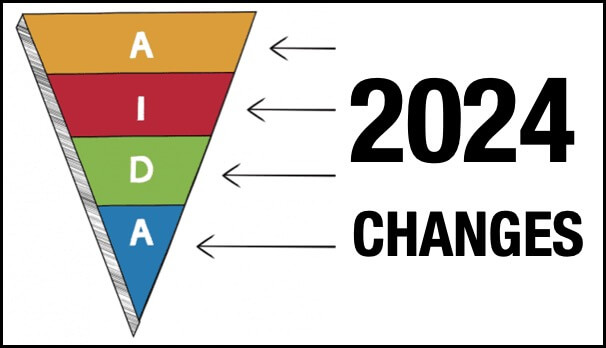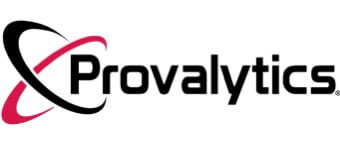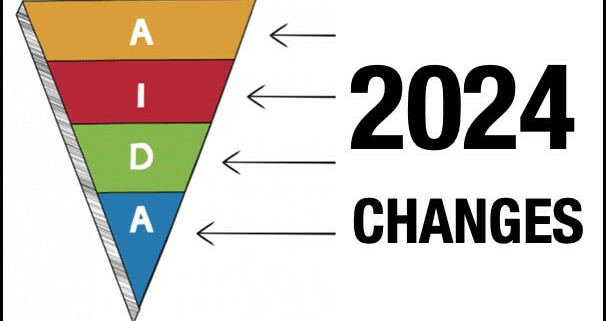Full Funnel Attribution – BIG Changes for 2024 🍪
Three major changes that will impact full funnel attribution in 2024 include the implementation of iOS privacy rules, the removal of third-party cookies from Chrome, and the introduction of privacy legislation in each state.
Marketing and sales teams play a pivotal role in the success of full funnel attribution models. As the digital advertising landscape evolves, it is crucial for these teams to adapt and stay ahead of the game.
🚀 Yes, I Want The 2024 Playbook!
In 2024, with the implementation of iOS privacy rules and the removal of third-party cookies from Chrome, marketing and sales teams will face new challenges in accurately attributing conversions and measuring the impact of marketing campaigns. The entire customer journey will require closer examination, and data-driven strategies will become even more essential for optimizing marketing ROI.
To achieve this, these teams must collaborate closely, leveraging attribution data to fine-tune growth marketing efforts across various marketing channels. By focusing on a full funnel marketing strategy and utilizing key performance indicators (KPIs) to measure success, marketing and sales teams can navigate the changing landscape successfully.
As the digital advertising industry continues to evolve, it’s more important than ever for marketers to stay up to date on the latest trends and changes. In 2024, three major developments will have a significant impact on full funnel attribution: the removal of third-party cookies from Chrome, the privacy laws passing in each state, and the privacy changes to iOS.
These developments will require marketers to be more innovative, data-driven, and responsible in their marketing tactics.

IOS Privacy Changes
With the implementation of the iOS privacy rules, advertisers are no longer able to acquire user data without the user’s express consent.

This will have a significant effect on marketers’ ability to accurately attribute conversions, especially on mobile devices. In order to overcome this challenge, marketers will need to find alternative data sources, such as server-side tracking or first-party data. It’s also crucial that they gain consumers’ express consent and be transparent about how they collect and use data.
Removal of Third-Party Cookies
The removal of third-party cookies from Chrome will also greatly impact full funnel attribution. Cookies have long been the foundation of internet monitoring and advertising, but with their impending disappearance, advertisers will need to find new ways to track user behavior and personalize their ads. This may involve using first-party data or browser-level tracking, and will likely require marketers to adopt more innovative marketing tactics.
Also being called the ‘cookie collapse‘ or “cookie apocalypse”, marketers are now forced to come up with new ways to gather data and reach their target audience. It’s the end of an era for digital marketing as we know it, says Provalytics CEO Jeff Greenfield.
Privacy Regulation
The growing number of privacy regulations in each state will also have an impact on full funnel attribution by limiting the amount of data that advertisers can gather and use. For example, some jurisdictions may ban the use of specific tracking technologies or require explicit consent for the collection of certain types of data. Marketers will need to stay informed about the latest privacy legislation in each state and adjust their tactics accordingly.

The changes to iOS privacy, the removal of third-party cookies from Chrome, and the introduction of privacy laws in each state will require marketers to be more creative, data-driven, and responsible in their marketing efforts. By embracing these changes, marketers can continue to accurately identify conversions and achieve commercial success in a rapidly changing digital environment. The key to success in this new landscape is to be adaptable and stay ahead of the curve by keeping up with the latest developments and trends.
Full Funnel Attribution – The Future
The future of full funnel attribution in 2024 demands a dynamic and innovative approach from marketing teams.
The disappearance of third-party cookies from Chrome and the introduction of privacy laws across states require marketers to be adaptable and creative in their methods. While challenges may arise in gathering data and reaching target audiences, it is essential to embrace the changes and explore new avenues, such as server-side tracking and first-party data.
Growth marketing in this new landscape will rely on understanding the entire customer journey and optimizing marketing campaigns for success.
Moreover, leveraging tools like Google Analytics to gain valuable insights and measure the impact of marketing campaigns will be more critical than ever before.
By staying informed and responsible in data-driven marketing tactics, marketing teams can overcome obstacles and continue to thrive in the ever-evolving digital advertising realm.
Full Funnel Attribution in Paid Search Ads
Paid search ads are a vital component of successful marketing strategies. As businesses allocate a substantial portion of their paid search marketing budget to these campaigns, understanding their impact through comprehensive full funnel attribution becomes paramount. This approach provides valuable insights into how paid search ads contribute to revenue generation and informs marketers’ decisions to optimize their strategies effectively.

Full funnel attribution encompasses the entire customer journey, from the initial touchpoint to the final conversion. Unlike traditional last-click attribution models that credit the last interaction before a conversion, full funnel attribution considers all marketing channels and touchpoints that played a role in the customer’s journey. By adopting this approach, businesses can gain a more accurate understanding of the true impact of their paid search ad campaigns.
At the top of the marketing funnel, paid search ads play a crucial role in creating brand awareness. These ads capture the attention of potential customers, driving website visitors and expanding the audience reach. However, attributing conversions solely to the top of the funnel might not provide a comprehensive view of the ad’s effectiveness.
The middle of the funnel is where potential customers actively consider their options. Here, paid search ads continue to be instrumental in maintaining brand visibility and influencing purchase decisions. Understanding the contribution of paid search ads during this phase allows businesses to fine-tune their budget allocation and focus on strategies that effectively nurture prospects.
The bottom of the funnel is where the conversion happens. Paid search ads often act as the last touchpoint, motivating users to take the desired action. While this final touchpoint is essential, full funnel attribution reveals the supporting touchpoints that led the customer to the conversion stage. This insight is invaluable in shaping marketing strategies to optimize conversions and maximize ROI.
Full funnel attribution becomes even more critical in the face of challenges posed by the implementation of iOS privacy rules and the removal of third-party cookies from Chrome. These changes restrict the amount of user data available for attribution, making it essential for marketers to explore alternative data sources and tracking methods. Embracing first-party data and transparently obtaining user consent are crucial steps to overcome these challenges and maintain accurate attribution.
As businesses adapt to the evolving landscape, personalized marketing experiences are becoming increasingly important. Full funnel attribution enables marketers to understand customer behaviors, preferences, and pain points, leading to the creation of more targeted and relevant paid search ad campaigns. Personalization enhances customer satisfaction, leading to increased engagement and higher chances of conversions.
What is full funnel attribution?
Full funnel attribution is a data-driven marketing strategy that aims to track and analyze the entire customer journey, from the initial brand exposure to the final conversion or purchase. It involves attributing credit to various marketing touchpoints and channels that contribute to a customer’s decision-making process. By understanding the impact of each touchpoint, marketers can optimize their marketing efforts, allocate budgets effectively, and measure the return on investment (ROI) for different marketing campaigns. Full funnel attribution goes beyond single-touch attribution models and provides a comprehensive view of how different marketing activities interact and influence customer behavior throughout the entire funnel.
What is a full funnel approach?
A full funnel approach is a marketing strategy that encompasses the entire customer journey, from the awareness stage to the conversion or sale. Instead of focusing on individual marketing channels or specific stages of the customer journey, the full funnel approach takes a holistic view and aims to align marketing efforts with each stage of the funnel. This approach acknowledges that customers go through multiple touchpoints before making a purchase, and marketers should tailor their messaging and tactics accordingly. By adopting a full funnel approach, marketing teams can create cohesive and consistent customer experiences, nurture leads effectively, and ultimately drive more conversions and revenue.
What is the funnel-based attribution model?
The funnel-based attribution model is a method used in full funnel attribution to assign credit to different marketing touchpoints based on their position within the customer journey funnel. It recognizes that customers interact with marketing messages at various stages, such as awareness, consideration, and conversion. In this model, different attribution weights are assigned to each stage, reflecting their relative importance in the customer’s decision-making process. For instance, marketing efforts that create brand awareness might receive higher attribution weights in the top-of-funnel stage, while activities that directly influence conversions might be more heavily weighted in the bottom-of-funnel stage. By utilizing the funnel-based attribution model, marketers can better understand which stages and channels are most influential at driving conversions and make data-driven decisions to optimize their marketing spend and improve overall campaign performance.
What major developments will impact full funnel attribution in 2024?
The removal of third-party cookies from Chrome, the privacy legislation passing in each state, and the privacy modifications to IOS.
What is the impact of the IOS privacy rules on marketers?
Advertisers are no longer permitted to acquire user data without the user’s express approval. This will impact marketers’ ability to attribute conversions accurately and they will need to rely on alternate data sources and have consumers’ express agreement while being more open and honest about how they gather and use data.
How will the elimination of third-party cookies from Chrome affect full funnel attribution?
The elimination of third-party cookies will require advertisers to find alternative ways to monitor user behavior and tailor their ads, such as using first-party data or tracking at the browser level, which will also require more innovative marketing tactics from marketers.
How will privacy regulations in each state impact complete funnel attribution?
Privacy regulations in each state will restrict the amount of data that advertisers can gather and use, and marketers will need to stay current with each state’s privacy legislation and modify their tactics accordingly, such as by avoiding the use of specific tracking technology or seeking explicit agreement for the collection of certain categories of data.


